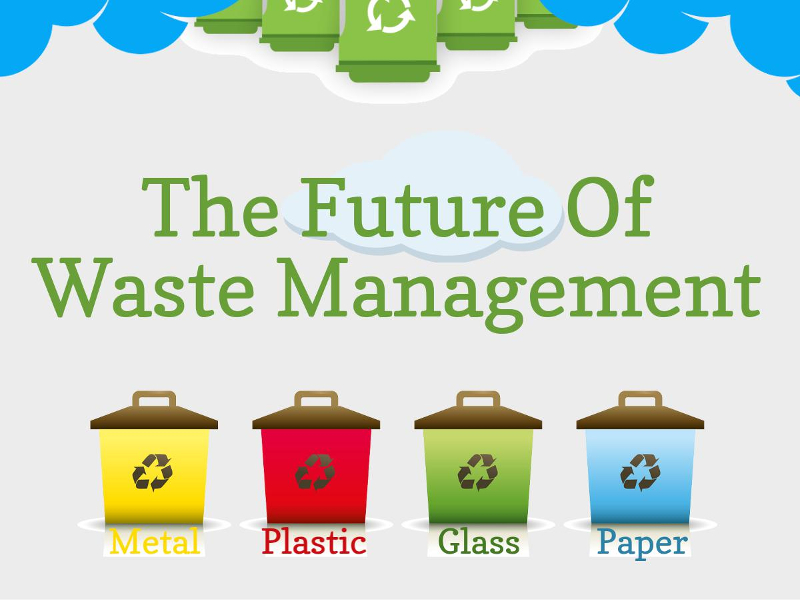
Contents
Introduction
Waste management plays a crucial role in modern society, ensuring the proper disposal and treatment of waste materials to protect the environment and public health. With the growing concerns over the impact of waste on our planet, exploring the future of waste management has become an area of great interest. This article delves into the historical background, key concepts, and current trends in waste management, while discussing the challenges and solutions that pave the way for a sustainable future.
Historical Background
Waste management practices have evolved significantly throughout history. Each era has contributed to shaping waste management approaches, from ancient civilizations practicing rudimentary waste disposal to the organized waste collection systems of the Industrial Revolution. Key milestones and events, such as the introduction of sanitary landfills and the development of incineration technologies, have played a pivotal role in transforming waste management practices.
Key Concepts and Definitions
To understand waste management, it is crucial to have a clear definition and grasp of key terms. Waste management refers to the process of collecting, transporting, treating, and disposing of waste materials in an environmentally responsible manner. Concepts such as recycling, landfilling, incineration, and composting are integral parts of waste management. Recycling involves the conversion of waste materials into reusable products, while landfilling and incineration focus on disposing of waste in a controlled manner. Composting, on the other hand, is the process of decomposing organic waste into nutrient-rich soil.
Main Discussion Points
Technological advancements in waste management have revolutionized the industry. Emerging technologies, like waste-to-energy and smart waste bins, offer innovative solutions to current waste management challenges. Waste-to-energy technologies convert waste materials into heat or electricity, reducing the reliance on fossil fuels. Smart waste bins utilize sensors and data analysis to optimize waste collection and management processes, ultimately enhancing efficiency and reducing costs.
Sustainable waste management strategies are gaining traction worldwide. The circular economy, which aims to minimize waste generation and maximize resource utilization, has found its application in waste management. By promoting recycling and reusing materials, the circular economy approach reduces the strain on natural resources and minimizes environmental impact. Adopting sustainable waste management practices also brings various benefits, including reduced greenhouse gas emissions, job creation, and the potential for economic growth in the recycling industry.
Community engagement and waste reduction initiatives play a pivotal role in achieving sustainable waste management. Successful campaigns driven by communities have shown significant progress in waste reduction. Educating and raising awareness among individuals about the importance of waste management and their role in it can lead to behavioral changes, ultimately reducing waste generation and promoting recycling.
Case Studies or Examples
Numerous cities and countries have implemented successful waste management practices. For example, Sweden has achieved impressive levels of recycling and waste-to-energy utilization, significantly reducing landfill waste. The city of San Francisco in the United States has implemented comprehensive recycling and composting programs, resulting in a remarkable reduction in waste sent to landfills.
Innovative waste management solutions implemented by companies and organizations have also made a significant impact. For instance, TerraCycle, a global recycling company, has developed recycling programs for hard-to-recycle waste items, diverting them from landfills. Similarly, The Ocean Cleanup, a non-profit organization, focuses on removing plastic debris from the oceans, addressing the global issue of marine pollution.
Current Trends or Developments
The waste management industry is witnessing several trends and developments. The increasing emphasis on waste prevention and reduction, along with the rise of the sharing economy, has led to innovative approaches to waste management. Circular supply chains and product stewardship programs are being implemented by businesses to minimize waste generation and promote responsible product lifecycle management.
Research findings related to waste management challenges and solutions are crucial for informing future strategies. Studies reveal the adverse effects of improper waste disposal on ecosystems, human health, and climate change. Research also highlights the potential of emerging technologies, such as waste-to-energy and advanced recycling methods, to mitigate these challenges.
Challenges or Controversies
Developing countries face unique challenges in waste management, including inadequate infrastructure, limited resources, and low awareness levels. Addressing these challenges requires tailored solutions that consider the specific socio-economic contexts of these nations. International cooperation and support are necessary to assist developing countries in establishing effective waste management systems.
Controversies surround waste-to-energy technologies due to concerns about their environmental impact. While waste-to-energy offers a viable alternative to fossil fuels and reduces landfill waste volume, critics argue that it may contribute to air pollution and the release of harmful emissions. Striking a balance between energy generation and environmental protection remains a key challenge in waste-to-energy implementation.
Future Outlook
The future of waste management lies in continuous innovation and advancements. With the increasing adoption of sustainable practices and emerging technologies, waste management is evolving towards a more circular and resource-efficient model. Advancements in waste sorting and recycling technologies, along with the integration of renewable energy sources, hold promise for a sustainable waste management future.
Conclusion
In conclusion, waste management is an essential aspect of modern society, and finding sustainable solutions is of utmost importance. Through historical insights, key concepts, and case studies, we have explored the challenges and solutions in waste management. Emphasizing the importance of community engagement, sustainable strategies, and technological advancements, we can pave the way for a future that prioritizes sustainable waste management practices and ensures a cleaner, greener planet for generations to come.